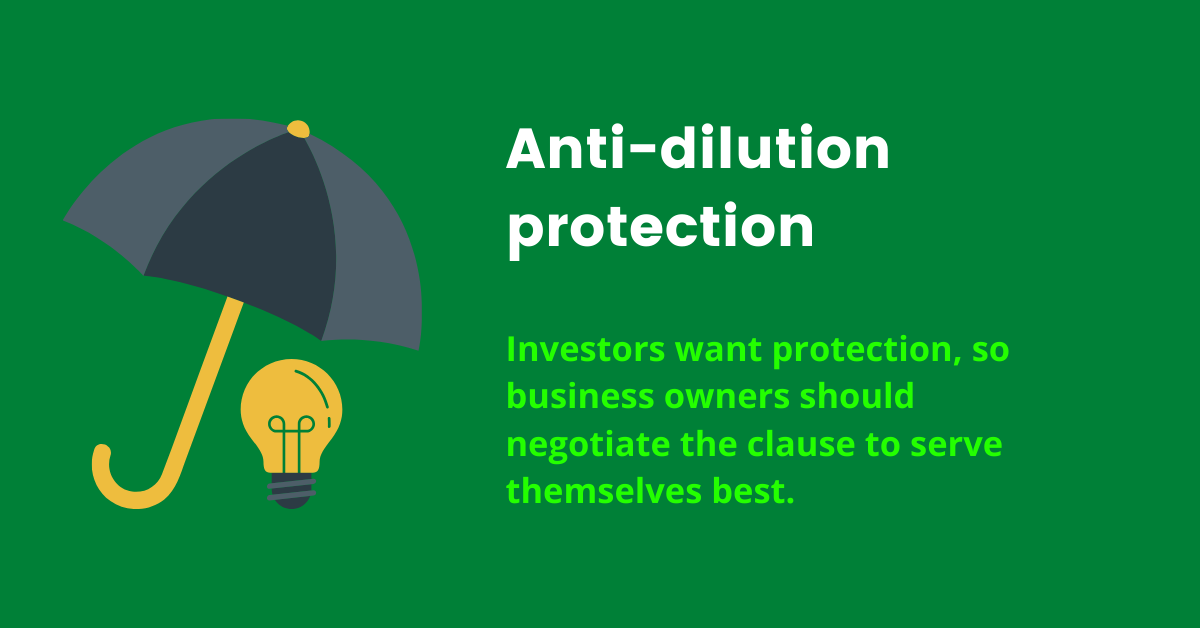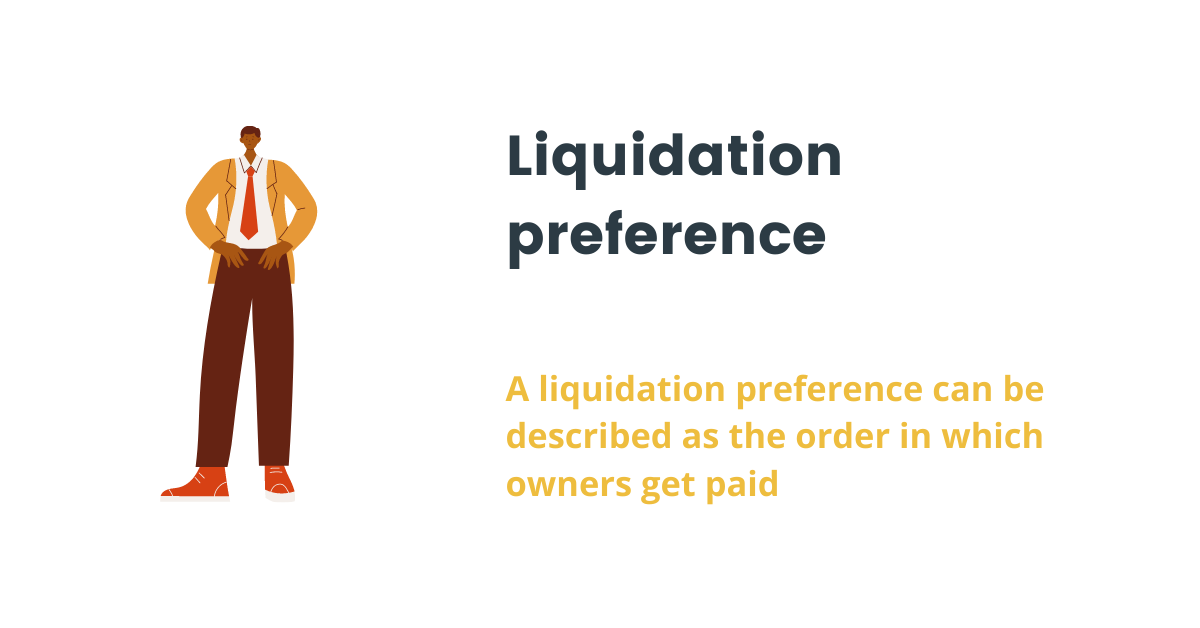The idea of accepting an outsider’s money or expertise in exchange for a share of your company can be tempting. But, the devil is always in the details – so don’t forget to negotiate everything you need before signing on that dotted line!
Structure of the investment
For those of you looking to take on an investor, it is important that you are aware of the many different ways in which this can happen. Understanding how your investment will work and what their rights and obligations are ensures a successful partnership for both parties involved.
So if you’re a small business owner, what difference does it make whether an investor is equity or debt? Well the key thing to know about both of these options is that they each have pros and cons.

For example with Equity investors their revenue only depends on your company’s profitability- so as long as profit margins are up then there’s no problem!
Whereas Debt Security with Warrants may be monthly payments but even when those revenues aren’t coming in (or worse yet shrinking) this type of investment won’t go anywhere because you’ll always take care of them first which means nobody will get into trouble for not paying out sooner rather than later.
Business owners should not take a Debt Security with Warrants investment if the terms are significantly worse than those of traditional equity investments. If you choose to invest in this type of security, make sure that it is better for your needs and provides bigger returns on what you put into it.
The Different Types of Financing for Startup Owners: Preferred versus common shares

If your company is being offered a traditional equity investment, it’s important to know if the investor will be taking preferred or common shares. Preferred stocks are typically given preference over others when receiving dividends and voting rights in major decisions such as mergers. Common shareholders lack these privileges but have higher risk tolerance than their counterparts.
Hold your shares of a business to ensure equality in the company. As an investor, you should be aware that having only common stock means equal footing with other investors who also have just one share for each share they own at any point in time; this will result in each person being entitled to their proportionate voting rights and proportional profits or losses depending on how much stake they hold at any given moment.
Having a preferred investor means you are giving up some control and sharing your revenue with someone else.
In today’s world, it is not uncommon for companies to have more than one type of stock share available for investors: common shares which give the owner voting rights but no guaranteed dividends or interest payments; preferred shares that provide certain privileges such as being able to vote on company-wide changes before they happen (known as preemptive rights), receiving regular dividend income, and having higher levels of protection against dilution from subsequent rounds of fundraising by issuing new equity.
It’s hard to get ahead when you are competing against someone with a better hand. For example, they might be able to buy 10 votes per share whereas I can only afford one and it doesn’t even matter if we’re both earning the same profit because their initial investment is going right back into them while mine builds up in my account.
Not only that but they also have more rights than me like anti-dilution protection which basically means that no changes happen for their shares until after all of our common stocks come out on top or liquidation preference (discussed further below) where they automatically take priority over other shareholders before anyone else gets any money from company assets at sale time.
In sum, if you see that they are getting preferred shares from their investment, then this means nothing for the common shareholder. Most investments operate in this manner and it just means that they will have different rules than those of a regular investor.
Anti-dilution protection prevents your ownership from being diluted

The anti-dilution protection clause is triggered by a decrease in the overall ownership percentage of an investor from 10%. This basically says that if down the road you decide to take on additional investors, or sell new shares at discounted rates for employees and family members, then their total ownership will not fall below what it was.
Investors want protection, so business owners should negotiate the clause to serve themselves best.
The stakes are high when it comes to negotiating an anti-dilution provision for outside investors in a small business negotiation – but there’s always room for diplomacy.
The version of “anti-dilution protection” that most benefits outside investors is commonly called a “full ratchet.” Under this scenario, the outside investors are able to buy additional shares of the company whenever they’re under threat.
The anti-dilution clause prevents diluting their ownership percentage by buying up any newly issued stock at whatever price it was sold for – and in case there’s ever been an offer below what you paid for your initial investment then these new stocks will be bought back from you instead.
That means that if you offered a small number of shares to employees, family members or credible investors at discounted prices in order to get them on board with your company’s vision and strategy then the same discounts would have been available for people who invested previously.
The idea behind this is that once an investor has already put their capital into your business it can be frustrating not having access to all possible opportunities within the organization because they were given earlier than other shareholders.
Liquidation preference

In order to help you understand what factors should be considered when negotiating a liquidation preference term sheet we will first need to define exactly what this term means. A liquidation preference is essentially a list of priorities for allocating proceeds from an exit event such as an acquisition or IPO where multiple investor groups hold equity stakes in the same company.
A liquidation preference can be described as the order in which owners get paid. For instance, if you own 30% of your company and sell it for $300,000 with a 60/40 split between yourself and the seller (so they would receive an extra $60K), then after any outstanding bills have been met out of that amount ($840) is distributed to each ownership stakeholder based on their percentage holdings–you would take home $21600 or 36%.
However if that same company had an investor who owned 60% while you own only 10%, then your profit would be limited to 20%. The investor gets whatever remains after paying out all other shareholders first. Investors usually make sure their share is large enough so they don’t have to worry about getting anything back from sales or bankruptcies because they’re secured.
You might be wondering how much money should you focus on in a venture. If the investor has given themselves some perks, such as being paid before your investors do or getting more than their original investment back when the company profits are distributed, it’s worth looking into this clause to see if they have something up their sleeve that could cause problems for future shareholders like yourself.
Covenants
A covenant, in the context of a business agreement or contract is an obligation created by promises. For example: affirmative covenants are things you promise to do as the manager and negative covenants are commitments not to undertake certain actions which may affect your management duties.
Outside investors want covenants in the agreement as part of their investment because they’re trusting you to take on running this business without them around.
Investors are going to want covenants in some form, so it is reasonable that they do. Any investor will be looking for a high level requirement of monthly or quarterly financial forecasts as well the need for certain levels of insurance protection which you must maintain throughout your partnership with them.
Covenants can include all sorts of things ranging from detailed requirements and needs when it comes to maintaining these two important aspects while running this business; however there’s nothing unreasonable about any willing investors wanting what their interest entails!
For example, one common request is that you covenant not to violate any regulation or law in running your business. Sometimes there are so many regulations and laws it can be hard for a person to know which ones they might have violated unknowingly; however, if someone has compromised this provision before the contract was drawn up then an agreement instead would state that no violations will knowingly occur.
If you want to start a new business, then there are even more reasons not to sign away your life in a restrictive covenant. In addition to the restrictions of having investors approve any contracts or hiring decisions that need approval before they can be made, covenants also restrict what day-to-day tasks an entrepreneur is allowed perform at their company and how much money they get from it as well!
Taking on an outside investor can be seen as quick and easy – much like turning over your business to one from TV’s “Shark Tank” – yet there are plenty of important legalese that needs to be understood before signing any deals at all.
Negotiating can be a delicate process, where you don’t get all of these clauses completely in your favor. But understanding the implications of them instead glossing over and signing whatever is put before you could literally make or break that business deal.

